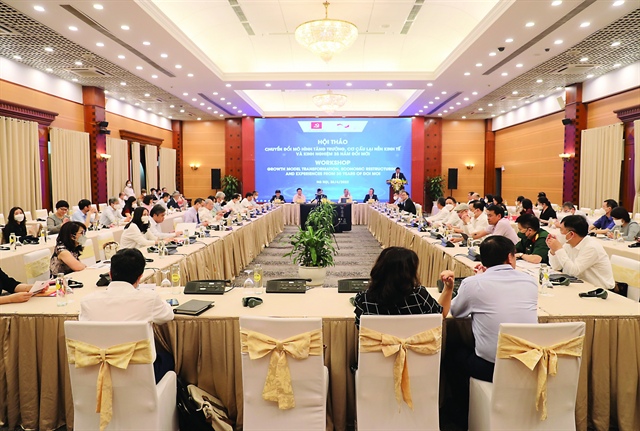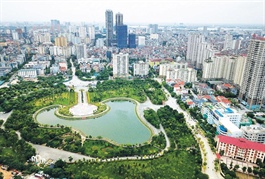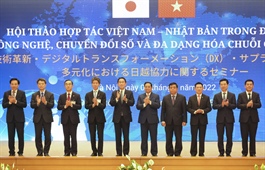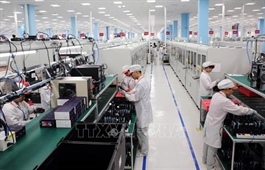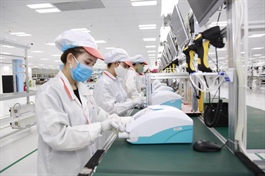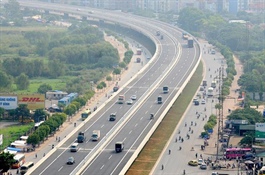Experts discuss achievements, setbacks
Experts discuss achievements, setbacks
Vietnam’s economy has achieved important improvements in the 35 years since adopting the Doi Moi (Renewal) reforms, but transformation of its growth model has stalled.
|
The Party Central Committee’s Economic Commission in coordination with the German Corporation for International Cooperation GmbH (GIZ) organized an April 26 workshop on growth model transformation, economic restructuring and experiences from 35 years of Doi Moi in Hanoi. Nguyen Duc Hien, deputy head of the Party Central Committee’s Economic Commission, said that after more than 35 years of Doi Moi, macroeconomic stability has been maintained and economic growth has reached a fairly good rate.
Labor productivity, total factor productivity (TFP) and national competitiveness have improved, while industries and fields have seen positive improvements. The key issues of economic restructuring, including public investment, state-owned enterprises and credit institutions have achieved some encouraging results, while restructuring the state budget and the public sector has yielded significant outcomes.
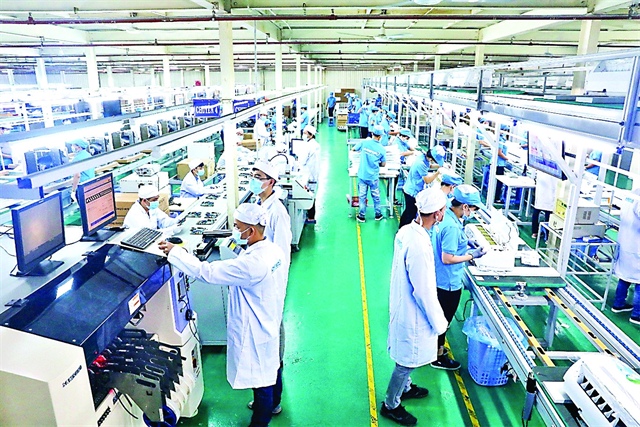
Vietnam’s economy has made remarkable progress |
However, growth model transformation remains slower than expected, Hien said. Vietnam’s growth model is mainly based on input factors, including capital, labor and resources. TFP contribution to economic growth remains limited, much lower than other countries in the region at the same development stage. Labor productivity growth is dependent on an increase in investment capital and the use of low-cost labor, while the efficiency of public investment remains low and its disbursement disappointing. The process of restructuring state-owned enterprises is also slow, while the private sector has not developed strongly to play an important role in the economy.
Tran Tho Dat, former rector of the National Economics University, said that given fluctuations in the world economy causing supply chain disruptions and risks to import-export activities, the digital economy will be the new driver for growth model transformation and economic restructuring. He proposed a number of solutions to promote digital economy development. These include developing a strategy framework for digital transformation, creating conditions to attract investment in digitalization of the economy, upgrading the education and training system associated with digitalization, providing support for startups, and promoting innovation and technology application. Promoting close coordination with the foreign-invested sector and ensuring information safety and security are also important, Dat said.
Associate Professor Tran Dinh Thien, former director of the Vietnam Institute of Economics, said Vietnam needs to encourage innovation and see science and technology and human resources as the most important drivers for growth. In addition, Vietnam needs to pay special attention to the synchronous development of input resource markets, the building of institutions in accordance with international integration commitments, and an appropriate foreign direct investment (FDI) strategy to bring into play its advantages, Thien said.
| Jonathan Pincus, senior economist for the United Nations Development Program (UNDP), said Vietnam needs to create a fair playground for domestic businesses and foreign-invested companies with great attention paid to financial mechanisms for micro, small and medium-sized enterprises. |


